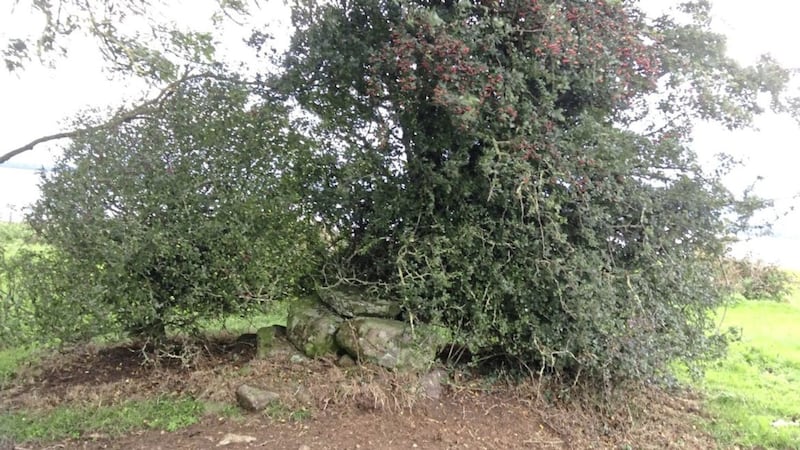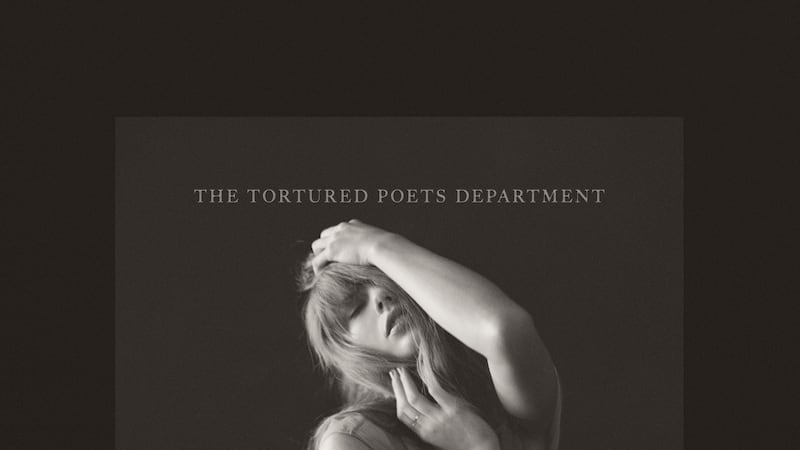AN UNREMARKABLE, almost forgotten collection of rocks and bushes, scattered across Co Antrim and which hold a vital link to the past, is being celebrated in a new book by Patrick McAteer.
The retired teacher from the townland of Creggan, near Randalstown, has pinpointed around a dozen sites of Mass rocks and Mass bushes for his book, Mass Stations of Duneane and Randalstown Parishes from the Penal Times.
Also included are previously unpublished memoirs of Canon James O'Boyle, a native of Duneane parish, who recounts biographical details about priests from the area, going back over 200 years.
"Canon O'Boyle was parish priest in Lisburn in the aftermath of the anti-Catholic pograms which followed the shooting of District Inspector Swansey in 1920 in the War of Independence," says the author and local history enthusiast. "Canon O'Boyle was largely responsible for rebuilding the parish at that time. He also gave Holy Communion to Michael Collins when he was imprisoned after 1916."
A noted academic, Canon O'Boyle also wrote a number of highly acclaimed books, including From Washington to Roosevelt – A Collection of Essays on the American Revolution – and Irish Colleges on the Continent – Their Origins and History.
In addition to featuring these memoirs in his own book, Mr McAteer identified and photographed the Mass rocks and Mass bushes in his local area, used to celebrate Mass during the times of the Penal Laws when public expressions of Catholicism were prohibited.
From 1695 to about 1750, life was difficult for Irish Catholics; churches were closed, bishops banished and many priests forced to leave the country. Even with this risk, priests continued to celebrate Mass for people in secret, isolated outdoor locations, using rocks as a makeshift altar.
"Local traditions are recounted relating to the Penal Times, including stories of how Protestant neighbours came to the aid of Catholics," Mr McAteer says. "Also discussed is the national and local historical context of the Penal Laws [imposed in order to force Catholics and Protestant dissenters to accept the established Church of Ireland] and how the Presbyterians, who were numerous throughout Ulster, also suffered greatly through Penal Laws."
Among the Penal Laws of the 1700s was the stipulation that Catholics could not buy land on a lease of more than 31 years and could not own a horse valued at more than £10. And Catholic priests were forced to register with the government under the Registration Act of 1704, with the aim that, with no further clergy being educated or ordained, there would eventually be no priests at all in Ireland.
Against this background, Mr McAteer tells how people in the local parishes would learn "by whispered conversations and secret signs" of an upcoming Mass at a remote Mass station or even at a private house.
"A tradition remains of how a signalling system was used to relay to people on the Bellaghy side of the River Bann that Mass was being celebrated at the Doon Mass rock in Moneyglass on the Antrim side of the river, so that the former could gather and celebrate the Mass by proxy, as it were," he writes.
"The priests had to be constantly on their guard against arrest, changing their locations and concealing their faces when celebrating Mass, to frustrate the 'priest hunters' who received a bounty for delivering priests to the authorities."
:: Mass Stations of Duneane and Randalstown Parishes is on sale in Kearney's Minimarket in Randalstown; Boyd's Supermarket in Toome and Moneyglass; Bethlehem Abbey, Portglenone, and An Culturlann, Belfast, priced £8.



